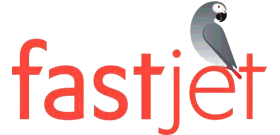 Fastjet Mozambique Faces Prolonged Licensing Delay Despite Government Assurances
Fastjet Mozambique Faces Prolonged Licensing Delay Despite Government Assurances
The Government of Mozambique has publicly denied allegations that it is intentionally stalling the licensing process for Fastjet Mozambique, even as the airline remains in limbo more than three months after initial regulatory clearances. The situation has drawn attention from aviation industry observers and raised questions about the pace and transparency of Mozambique’s aviation licensing procedures—issues that resonate across Africa’s competitive domestic air travel market.
According to both industry specialists and Mozambique’s state news agency, the certification process for Fastjet Mozambique is technically progressing, but the final approval remains elusive. Solenta Aviation Mozambique, the locally owned operator set to run Fastjet Mozambique under a franchise agreement with the Fastjet Group, is still navigating the phased Air Operator’s Certificate (AOC) process. Government spokesman Inocêncio Impissa confirmed on 22 August 2025 that the airline’s financial strength, maintenance protocols, and staff qualifications have already been assessed. The last hurdle is to ensure full compliance with Mozambique’s national aviation policies—a step for which no completion timeline has been provided.
The drawn-out process began in May 2025, when Solenta Aviation Mozambique’s business plan and AOC received approval from the Mozambican Civil Aviation Institute (IACM). This milestone was widely seen as a breakthrough, paving the way for the return of Fastjet-branded scheduled flights in Mozambique. Since then, however, the airline has been left waiting for the final green light, despite having already taken delivery of two Embraer E145 regional jets, hiring crew and staff, securing supplier contracts, and fulfilling all regulatory and financial obligations.
The extended delay has sparked concern among industry stakeholders about the impact of Mozambique’s licensing process on competition and consumer choice. Fastjet Mozambique’s entry is expected to inject much-needed competition into the domestic market, offering travelers more options and potentially driving down fares. The airline’s operational readiness—demonstrated by its investment in aircraft, personnel, and supplier relationships—stands in stark contrast to the regulatory bottleneck it now faces.
For Africa’s travel sector, the Fastjet Mozambique case highlights the broader challenges of regulatory uncertainty and market access that continue to affect airline expansion across the continent. Efficient, transparent, and predictable licensing processes are essential for attracting investment, fostering competition, and improving air connectivity—key ingredients for tourism growth and economic development. Delays not only frustrate airline operators but also limit the choices available to travelers and slow the pace of regional integration.
Government officials maintain that the process is moving forward and that there is no deliberate obstruction. However, the lack of a clear timeline and the absence of public updates have fueled speculation about the underlying causes of the delay. Some industry analysts point to the need for greater regulatory capacity and streamlined procedures, while others suggest that market dynamics and incumbent interests may be at play.
Once approved, Fastjet Mozambique plans to launch domestic routes, providing a new alternative for Mozambican travelers and supporting the country’s broader ambitions for improved air connectivity. The airline’s entry could also serve as a catalyst for further liberalization and modernization of Mozambique’s aviation sector, encouraging other operators to enter the market and raising service standards across the board.
For travel professionals and industry stakeholders in sub-Saharan Africa, the Fastjet Mozambique story is a reminder of the importance of regulatory reform and institutional capacity-building. As demand for air travel continues to rise and new entrants seek to tap into Africa’s growing aviation market, governments and regulators must prioritize efficiency, transparency, and fair competition to unlock the sector’s full potential.
As the industry awaits the final decision, all eyes remain on Mozambique’s authorities to deliver on their promise of a fair and timely licensing process—one that will ultimately benefit travelers, airlines, and the broader economy alike.
